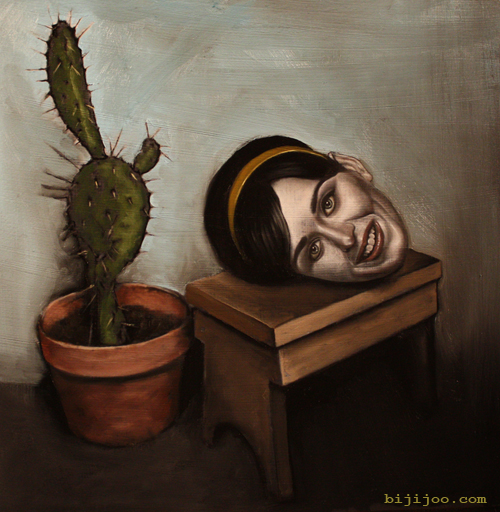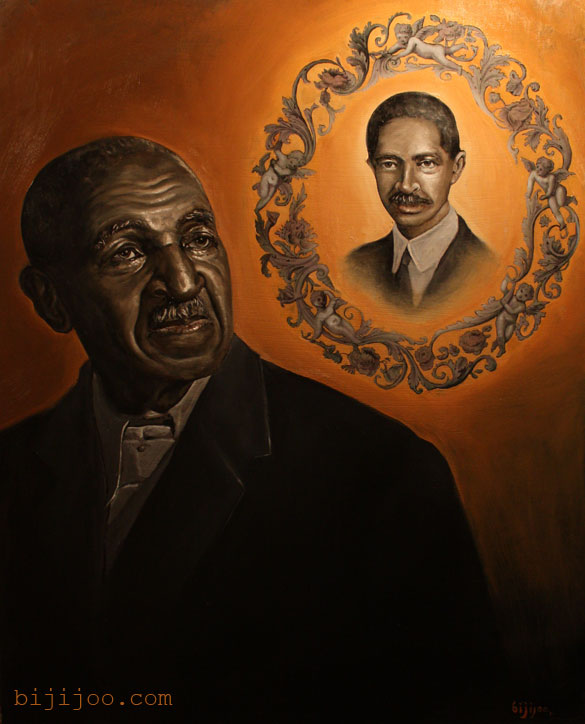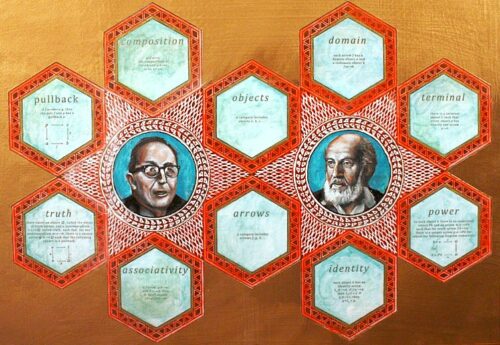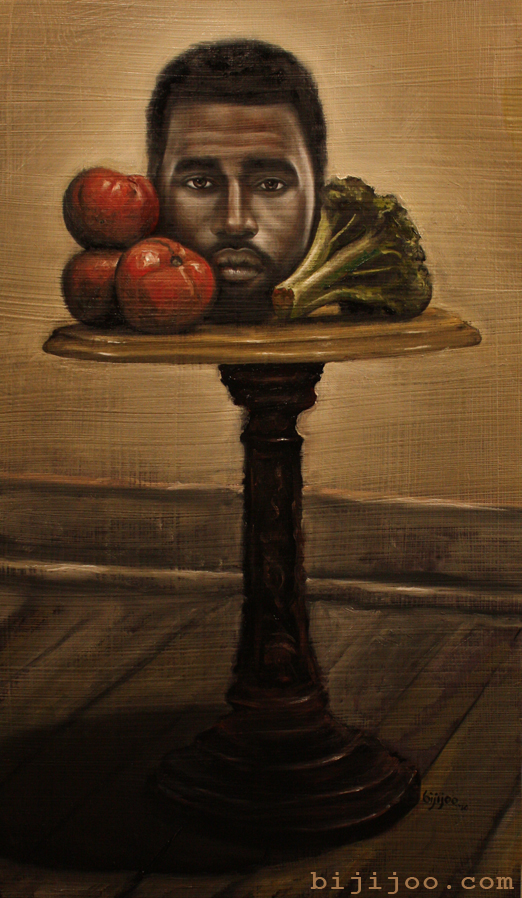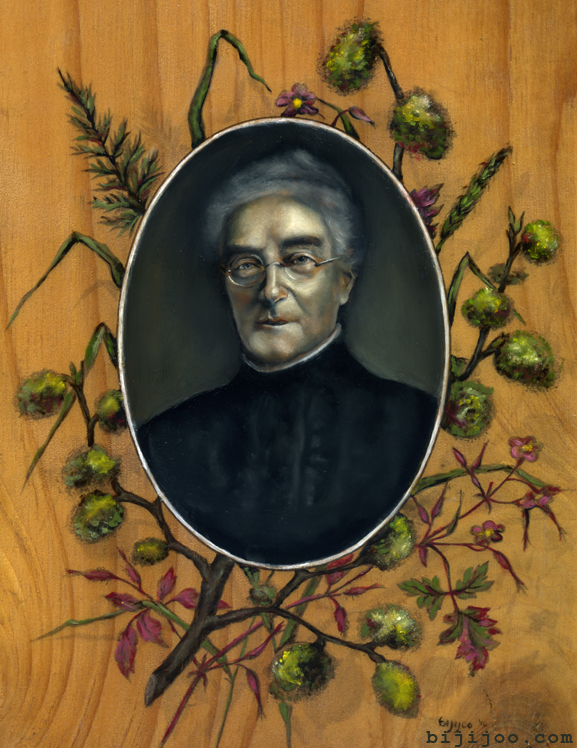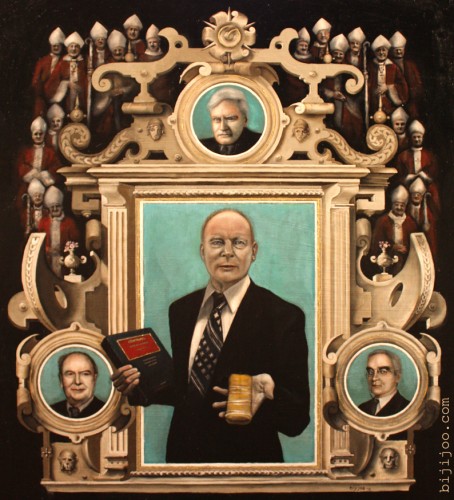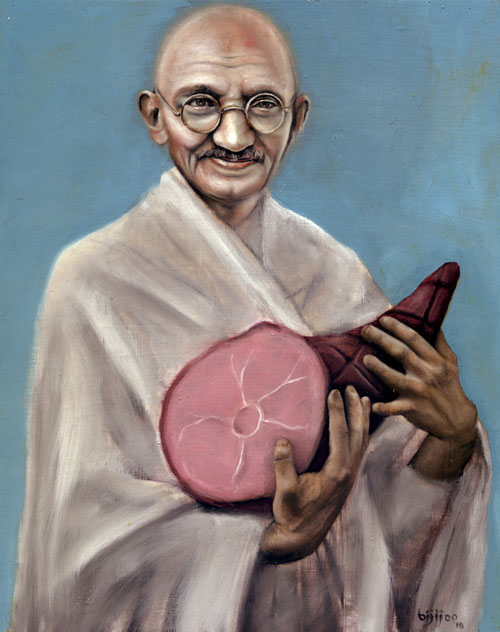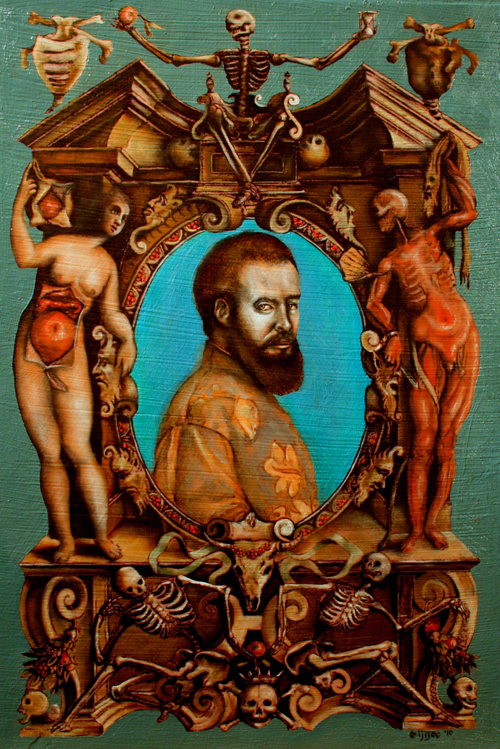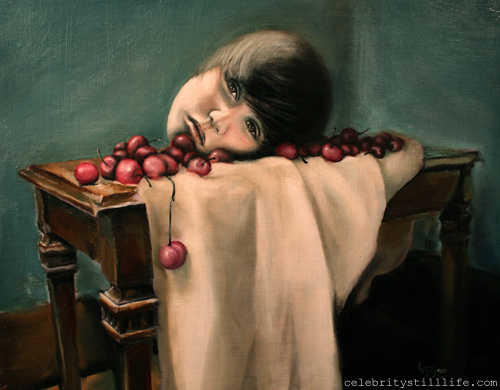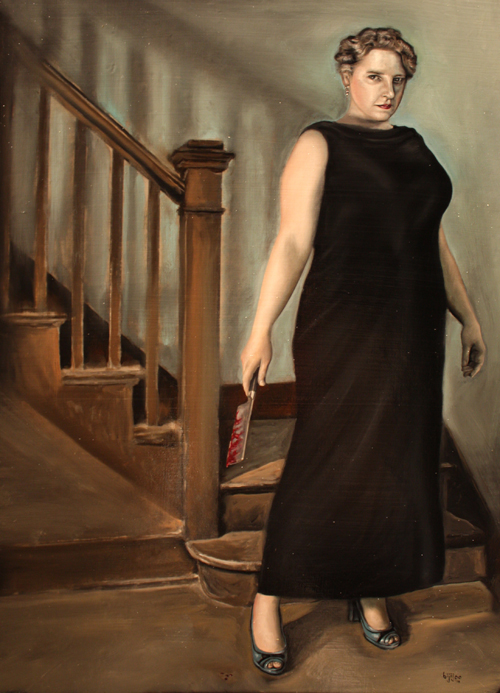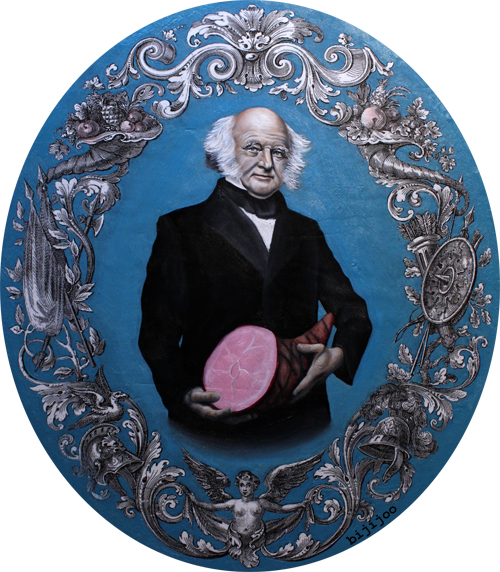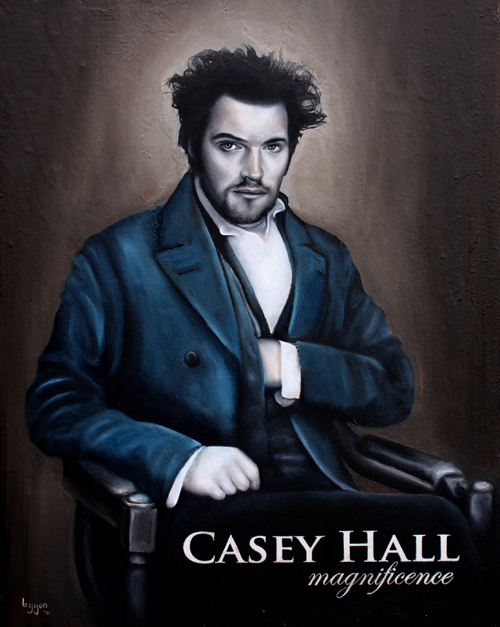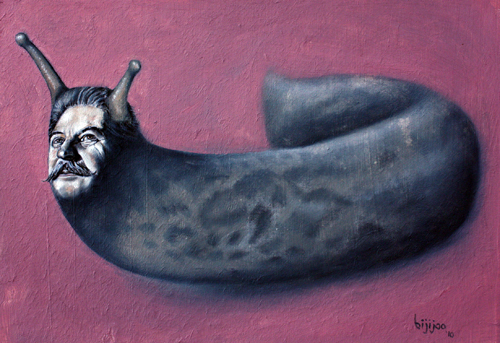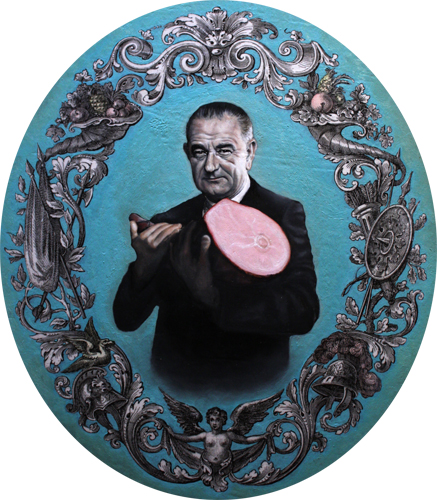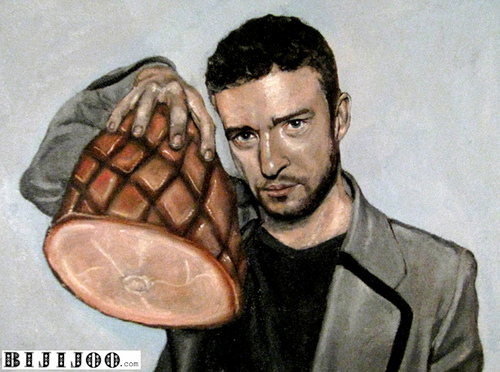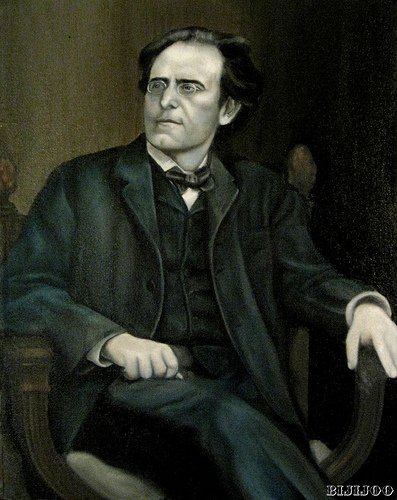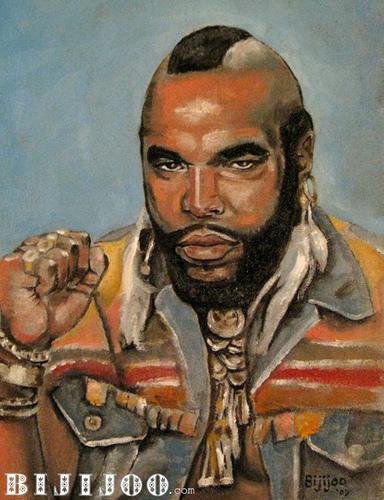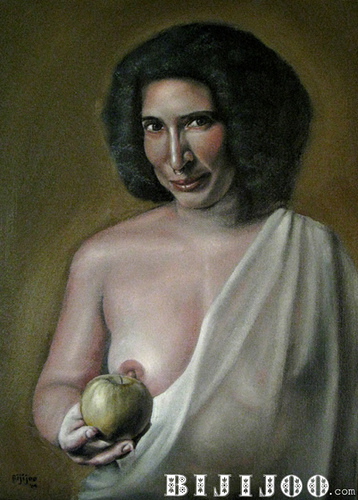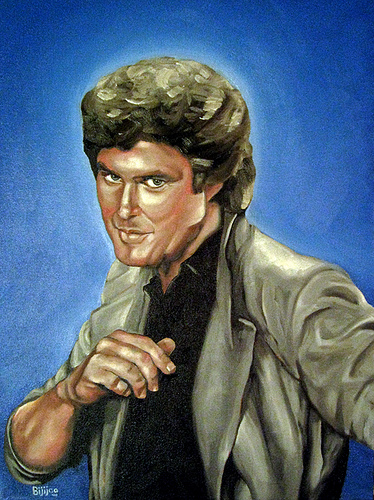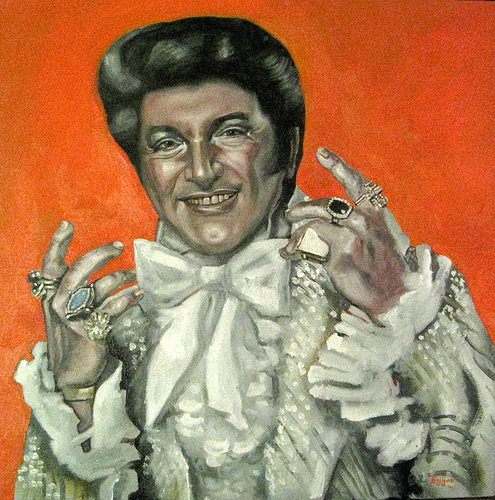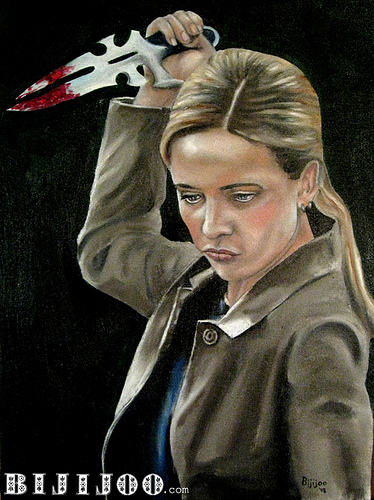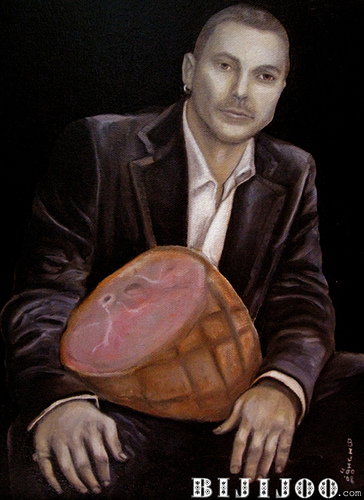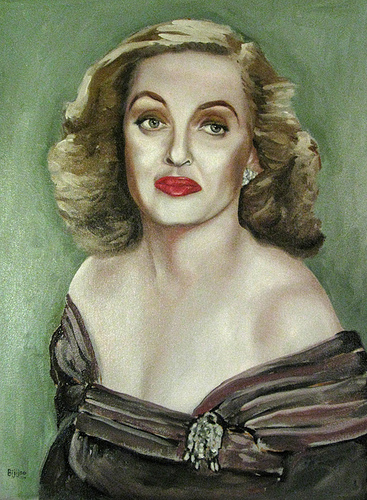Pickles the Clown in a Bathtub. Oil on panel, 24in x 24in, 2011.
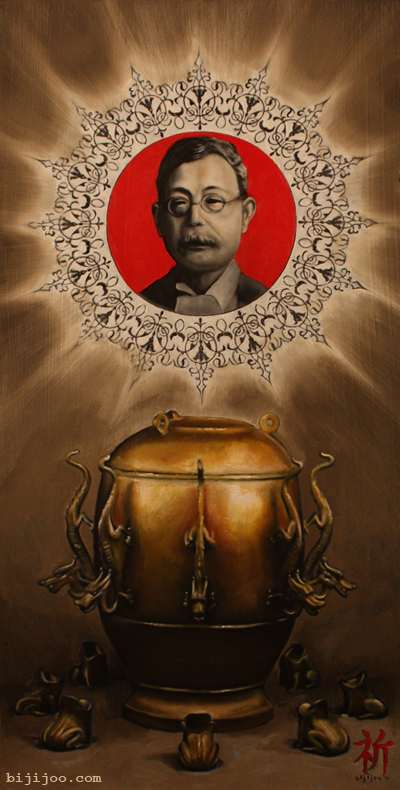 Fusakichi Omori’s Prayer. Oil on panel, 10in x 19in, 2011. DETAIL PHOTOS
Fusakichi Omori’s Prayer. Oil on panel, 10in x 19in, 2011. DETAIL PHOTOS
Portrait of Dr. George Washington Carver with Austin Wingate Curtis, Jr.
24in x 36in Oil on Panel
George Washington Carver was an American scientist, botanist, artist, educator, and inventor. “[He] did not know the exact date of his birth, but he thought it was in January 1864 (some evidence indicates July 1861, but not conclusively). He knew it was sometime before slavery was abolished in Missouri, which occurred in January 1864″[1].DETAIL PHOTOS
In 1942–45, mathematicians Samuel Eilenberg (right) and Saunders Mac Lane (left), introduced category theory as part of their work in algebraic topology. Category theory abstractly codifies the properties of mathematical concepts by formalising them as collections of objects and arrows (morphisms) which satisfy certain basic conditions. Significant areas of mathematics can be formalised as categories, and the use of category theory allows many intricate and subtle mathematical results in these fields to be stated, and proved, in a much simpler and elegant way than without the use of categories.
Categories can be used as a possible foundation of all of mathematics, thus replacing the use in such a foundation of the usual Zermelo-Fraenkel axioms for set theory. The category theory axioms orbit the heads of Eilenberg and Mac Lane shown in the painting.
Portrait of Ellen Swallow Richards, Chemist.
8.5″ X 11″ oil on acetate on wood.
Ellen Swallow Richards (December 3, 1842 – March 30, 1911) was the foremost female industrial and environmental chemist in the United States in the 19th century, pioneering the field of home economics. Richards graduated from Westford Academy (2nd oldest secondary school in Westford, MA). She was the first woman admitted to the Massachusetts Institute of Technology (MIT) and its first female instructor, the first woman in America accepted to any school of science and technology, and the first American woman to earn a degree in chemistry.
DETAIL PHOTOS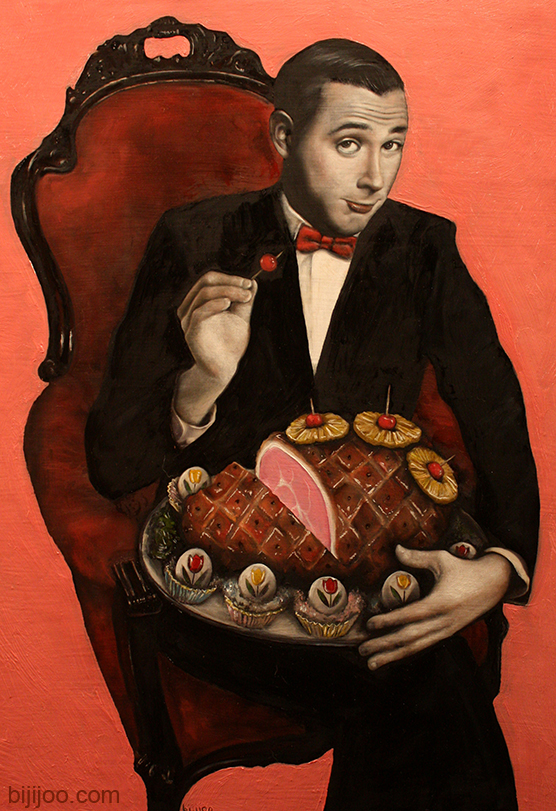
Pee-wee Herman with a pineapple-glazed ham.. Oil on panel, 13in X 19in, 2010.
Portrait of Ralph James (Jim) Mooney, Professor Emeritus, University of Oregon School of Law
24″x24″, Oil on panel. Commissioned.
Professor Mooney is an authority on and has written extensively about American legal history and contract law. Mooney joined the University of Oregon faculty in 1972, after working with Howard, Prim, Rice, Nemerovski, Canady & Pollak in San Francisco, specializing in commercial litigation before federal and state courts and administrative agencies.
Mooney has been one of the most beloved professors at the law school. His classes are very tough – he’s the only professor who requires students to memorize case names and other citations for exams, and he asks hard questions – but he’s always kind and fair to students, and he buys his class maple bars once or twice a term. Professor Mooney dresses down, and wears a mixture of clothes that look like they’ve been bought from the discount rack at Macy’s over the last three decades. Not really the traditional sloppy professor look, but probably the closest you’ll see in law school. Mooney often wears an earring – a single small diamond or other gemstone in his left ear.
Professor Mooney has been teaching the same class (Contracts) for so long that it feels like a performance sometimes. As an example, one of the first cases in every Contracts class is Hamer v. Sidway (~1885), about a nephew who sued his uncle to pay the $5000 he promised on condition that the nephew abstain from smoking or drinking until the age of 21. The nephew was not named Hamer, and the uncle was not named Sidway. After going over this case for 20-30 minutes, he says “I just have one more question: Who the hell are Hamer and Sidway?” And the class laughs. (They are people who bought the nephew’s and uncle’s original obligations). He has always taught from Farnsworth’s casebook which he holds in his right arm in the painting.
Mooney’s upper-level courses were about American legal history and historical figures, and there are three judges he especially likes because of their excellent jurisprudence: Benjamin Cardozo (top center), Learned Hand (bottom right), and J. Skelly Wright (bottom left). The 20 bishops in the painting are in reference to one of Mooney’s favorite quotes, from a case Learned Hand decided:
“A contract has, strictly speaking, nothing to do with the personal, or individual, intent of the parties. A contract is an obligation attached by the mere force of law to certain acts of the parties, usually words, which ordinarily accompany and represent a known intent. If, however, it were proved by twenty bishops that either party, when he used the words, intended something else than the usual meaning which the law imposes upon them, he would still be held, unless there were some mutual mistake, or something else of the sort. Of course, if it appear by other words, or acts, of the parties, that they attribute a peculiar meaning to such words as they use in the contract, that meaning will prevail, but only by virtue of the other words, and not because of their unexpressed intent.” Hotchkiss v. National City Bank of New York, 200 F. 287, 293 (D.C.N.Y. 1911).
Posted in CELEBRITYSTILLIFE, PAINTINGS | permalink | Comments Off on Still Life with Lady Gaga and Cantaloupe
Portrait of Max Planck, Theoretical Physicist
Max Planck (April 23, 1858 – October 4, 1947) was a German theoretical physicist, considered to be the founder of quantum theory, and thus one of the most important physicists of the twentieth century. Planck was awarded the Nobel Prize in Physics in 1918.
DETAIL PHOTOSPortrait of Andreas Vesalius, Anatomist
Andreas Vesalius (December 31, 1514 – October 15, 1564) was an anatomist, physician, and author of one of the most influential books on human anatomy, De humani corporis fabrica (On the Workings of the Human Body). Vesalius is often referred to as the founder of modern human anatomy.DETAIL PHOTOS
Martin Van Buren holding a Ham from the Presidential Ham series.
Lyndon Johnson holding a Ham from the Presidential Ham series.
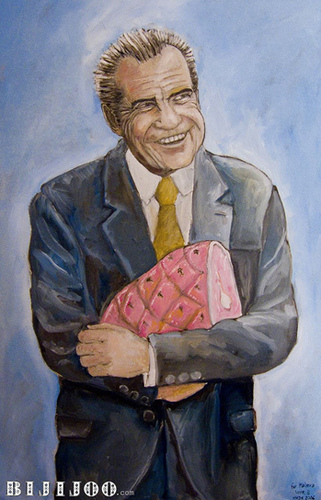 Richard Nixon holding a Ham. One of the precursors to the Presidential Ham series.
Richard Nixon holding a Ham. One of the precursors to the Presidential Ham series.
Posted in PAINTINGS | permalink | Comments Off on David Hasselhoff
Portrait of Richard Feynman, Physicist
Richard Phillips Feynman (1918 – 1988) was an American physicist known for his work in the path integral formulation of quantum mechanics, the theory of quantum electrodynamics and the physics of the superfluidity of supercooled liquid helium, as well as in particle physics (he proposed the parton model).DETAIL PHOTOS
Posted in CHAMBEROFSCIENTISTS, PAINTINGS | permalink | Comments Off on Richard Feynman
Posted in PAINTINGS | permalink | Comments Off on Vanilla Ice
Posted in PAINTINGS | permalink | Comments Off on Bette Davis

